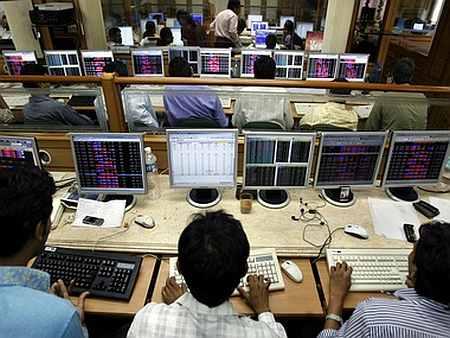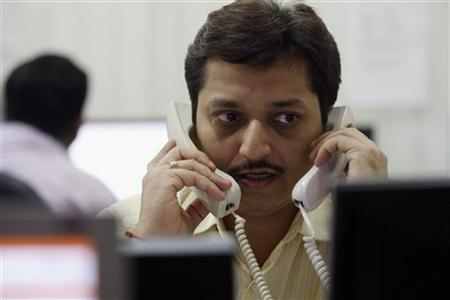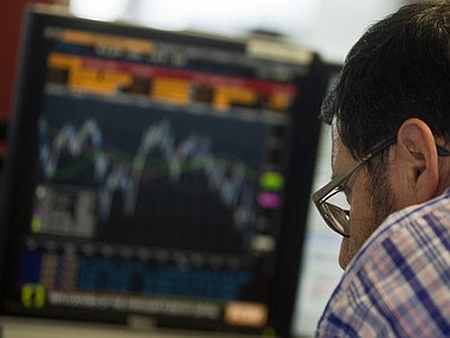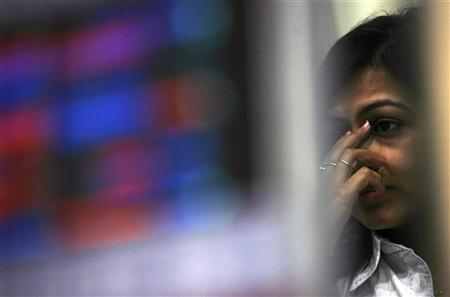Photographs: Reuters Malini Bhupta in Mumbai
Despite all odds, the Nifty has returned over 15 per cent since January.
For an economy with high deficits and slowing growth, this is no mean feat.
With foreign institutions pumping dollars into Indian equities after a brief lull, many are asking if these are early signs of a bull market.
The answer to this is a clear no.
Technical chartists and experts on fundamentals are trying to figure when the next bull run would begin.
. . .
When will the next bull market start?
Photographs: Arko Datta/Reuters
Strategists are looking at previous bull markets to figure if the time is ripe for another such cycle.
Even as the Nifty is expected to trade in a wide trading band of 4,500 to 6,000, experts don't expect the market to break new ground.
Since these have been moving sideways for long, foreign institutions are allocating incremental money to India, as earnings have grown.
Despite incremental flows, the markets are likely to trade in a wide band.
So, what does it take for a secular bull market to kick off? Morgan Stanley has worked out a framework detailing the ingredients.
. . .
When will the next bull market start?
Photographs: Reuters
Ridham Desai of Morgan Stanley says: "Our framework suggests there are three fundamental ingredients -- bullish steepening of the yield curve (as a leading sign of better growth), expanding profit margins (to translate 'GDP growth' into 'profit growth', as higher share prices need profit growth) and attractive valuations (i.e the story is not in the price)."
Are any of these in place? Desai believes while valuations are attractive and ready for a bull market, profit growth is entering a phase of mild recovery.
However, a full-blown margin expansion cycle is not happening just yet.
. . .
When will the next bull market start?
Photographs: Arko Datta/Reuters
Though the broader market is not in a bull phase, Morgan Stanley believes investors can make outsized returns, as individual stocks (small and large) are in a bull market.
While valuations might be attractive, for a secular bull run to return, economic growth has to revive.
Rikesh Parikh, vice-president (equities) of Motilal Oswal Securities, believes for the bulls to return, interest rates have to start declining and economic growth has to trend upwards.
Till both these happen, the markets will see some upward movement but there will be no long-term directional change.
He says: "The government can take measures to revive growth but as of now, there is no indication of this happening.
Similarly, while interest rates have peaked, the central bank is unlikely to cut (interest rates), as inflation remains high."






article